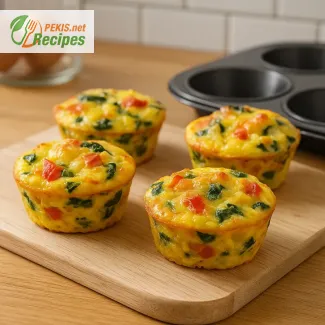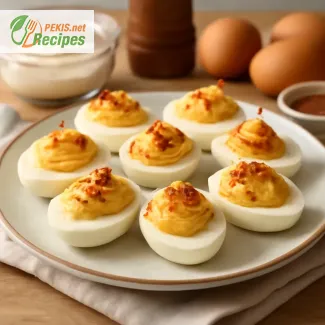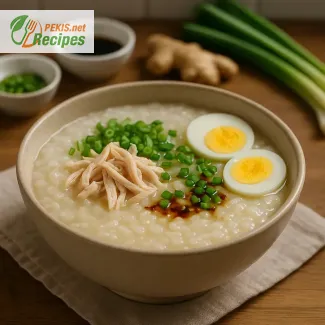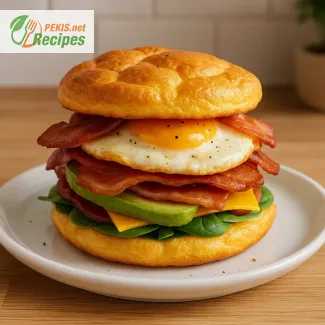
Protein-packed breakfast bites that make mornings easier
Why egg muffins are the perfect start to your day
If you're searching for a quick, protein-rich breakfast that’s both satisfying and easy to prepare, egg muffins may soon become your go-to morning solution. These savory, bite-sized creations are more than just visually appealing—they're incredibly functional for busy mornings, meal prep, or high-protein diets. Unlike traditional muffins that are often loaded with refined sugar and flour, egg muffins are low-carb, gluten-free, and easily customized to suit dietary needs or taste preferences.
At their core, egg muffins are a brilliant hybrid between a mini quiche and a frittata—simple to bake, portable, and packed with nutritious ingredients. Whether you’re following a keto, paleo, or high-protein lifestyle, they offer a smart, flexible base for countless flavor combinations. From chopped vegetables and herbs to shredded cheese and lean meats, each batch can be tailored to fit your macros or mood.
A modern meal prep staple
Meal prepping has become a staple in health-conscious kitchens, and egg muffins shine in this category. Because they’re baked in individual portions using a standard muffin tin, they’re incredibly convenient to portion, store, and reheat. Prepare a full tray at the beginning of the week, and you’ll have grab-and-go breakfasts ready in the fridge or freezer—no extra planning or morning chaos required.
Their compact shape and high protein content make egg muffins ideal for people with active lifestyles or those trying to increase their protein intake without overloading on calories. Plus, they pair beautifully with avocado, fresh fruit, or a slice of whole-grain toast, making them a versatile base for a complete and nutrient-dense breakfast.
Ideal for special diets and picky eaters
Another major strength of this recipe lies in its adaptability. Whether you're cooking for someone with specific dietary restrictions or feeding children with selective palates, egg muffins allow you to be creative and intentional with your ingredient choices. They're naturally gluten-free and can easily be made dairy-free or vegetarian, depending on the add-ins.
You can load them with spinach, mushrooms, and tomatoes for a vegetable-forward version, or incorporate turkey bacon and shredded cheddar for a heartier, indulgent twist. Even toddlers enjoy these mini bites thanks to their soft texture and mild flavor, making them an excellent way to sneak more vegetables or protein into a child’s meal.
Balanced energy without the blood sugar spike
Traditional breakfast options like toast, cereal, or pastries often lead to a quick energy crash due to their high glycemic index. In contrast, egg-based breakfasts provide sustained energy throughout the morning. Thanks to their high protein and fat content, egg muffins help balance blood sugar levels and reduce mid-morning cravings.
For athletes or anyone following an anti-inflammatory or low-carb protocol, egg muffins offer the perfect combination of macronutrient balance and convenience. With the ability to control exactly what goes into each muffin, you’re in charge of your breakfast fuel—no surprises, no unnecessary additives, just real ingredients that work for your body.
Customizable flavors, minimal effort
One of the best things about egg muffins is how effortlessly customizable they are. With just a few basic ingredients—eggs, milk (or dairy-free alternative), salt, and pepper—you can build a solid base and then personalize each muffin cup. Divide the mixture evenly and load some with chopped bell peppers and feta, others with ham and Swiss, or even try a Mediterranean combo with olives and sun-dried tomatoes.
This recipe is perfect for using up leftovers or fresh produce that needs to be eaten. The short prep time, simple mixing process, and one-pan baking method make it incredibly beginner-friendly. Even those with limited kitchen experience can achieve café-quality breakfast muffins without stress or complexity.
A smart choice for family brunches and gatherings
Beyond the individual convenience, egg muffins are also a hit at brunches and family gatherings. They look appealing on a platter, hold their shape well, and can be served warm or at room temperature. They’re especially popular at baby showers, weekend brunch spreads, and picnic baskets, where finger food is preferred.
Their individual portions make them hygienic and easy to share, and because they hold up well without refrigeration for short periods, they’re perfect for outdoor meals or school lunches too. Whether served alongside fruit salads and pastries or presented as the star of a buffet, egg muffins offer an elegant yet practical option that works for any occasion.
Smart cooking for modern lifestyles
In today's fast-paced world, home cooks need solutions that align with their schedules without compromising nutrition. Egg muffins check every box: they’re quick, budget-friendly, and loaded with protein, and they satisfy both children and adults alike. Whether you’re making them fresh each morning or prepping them in advance for the week, this recipe delivers consistent results with minimal prep time.
They also scale well—whether you’re baking six muffins or twenty-four. The batter comes together in minutes, bakes quickly, and requires minimal cleanup. If you’re tired of morning decision fatigue or grabbing something processed on the go, adding egg muffins to your routine is a simple upgrade that makes a big difference in your daily energy and well-being.
Step 1: Preheat your oven to 180 °C (356 °F). Lightly grease a standard muffin tin using olive oil or line with silicone muffin cups.
Step 2: In a medium mixing bowl, crack the eggs and whisk them together with the whole milk until the mixture is smooth and well combined.
Step 3: Add the chopped red bell pepper, baby spinach, onion, and grated cheddar cheese to the egg mixture. Season with salt and black pepper. Stir gently until all ingredients are evenly distributed.
Step 4: Pour the egg mixture evenly into the muffin cups, filling each about ¾ full to allow room for rising.
Step 5: Place the muffin tin into the preheated oven and bake for 18–20 minutes, or until the egg muffins are set and lightly golden on top.
Step 6: Remove from the oven and let the muffins cool for 5 minutes before gently loosening them from the tin with a butter knife.
Step 7: Serve warm or let them cool completely and store in the refrigerator for up to 4 days. They can also be frozen for up to 2 months.
Creative ways to elevate homemade egg muffins
Simple tweaks that transform your breakfast bites into gourmet delights
Egg muffins are loved for their simplicity, versatility, and nutritional value. But even a tried-and-true recipe can benefit from thoughtful improvements. Whether you're cooking for health reasons, looking for more complex flavors, or simply want to refine your technique, there are several strategies to enhance this dish beyond the basic version.
Choose the right eggs for better texture and color
Using fresh, organic eggs makes a noticeable difference in both flavor and texture. Fresh eggs tend to create a fluffier structure, while the yolks are often richer in color, lending your muffins a more appealing golden hue. If you can find pasture-raised eggs, they’re typically higher in omega-3 fatty acids and offer a richer taste.
For those who prefer a lighter texture, beating the eggs longer before mixing can incorporate more air, which leads to softer, more soufflé-like muffins. Just be cautious not to overbeat, or the structure may collapse during baking.
Upgrade the milk or cream base
Traditional egg muffins use milk to add creaminess and moisture. Swapping whole milk for half-and-half or a splash of heavy cream gives the muffins a more luxurious, custardy bite. On the other hand, using plant-based options like oat or almond milk reduces saturated fat and creates a lighter texture—ideal for dairy-sensitive eaters.
If you prefer a richer mouthfeel, combine milk and Greek yogurt. A tablespoon or two of plain Greek yogurt adds a slightly tangy undertone and increases the protein content.
Mix-ins that make all the difference
Your choice of vegetables, meats, and cheeses dramatically impacts the flavor profile. While the base recipe includes spinach, red bell pepper, onion, and cheddar, there’s a world of options to experiment with:
- Sun-dried tomatoes add a punch of umami and a chewy texture.
- Crumbled feta or goat cheese introduces creaminess and tang.
- Diced cooked bacon or turkey sausage enhances the savory depth.
- Fresh herbs like chives, parsley, or basil brighten the overall taste.
- Zucchini or mushrooms add moisture but should be sautéed first to avoid soggy muffins.
The key is balancing moisture and flavor. Vegetables with high water content (like tomatoes or zucchini) should be pre-cooked or drained to maintain the structure of the muffin.
Healthier swaps without sacrificing flavor
If you're aiming for a low-fat or low-cholesterol version, consider using egg whites or a mix of whole eggs and egg whites. Three egg whites can replace one whole egg, keeping the protein content high while reducing fat.
Cheese can be substituted with nutritional yeast, which provides a cheesy flavor without dairy. Instead of using processed meats, opt for lean proteins like grilled chicken, smoked tofu, or lentils.
Use olive oil spray or line muffin tins with silicone cups instead of butter to reduce unnecessary saturated fat. Add fiber-rich vegetables like broccoli or kale to enhance digestion and keep you feeling full longer.
Avoid these common preparation mistakes
Even a simple recipe like egg muffins has pitfalls that can ruin the final result:
- Overfilling muffin cups causes spillover and uneven cooking.
- Skipping the oil or liner leads to sticking and broken muffins.
- Under-seasoning the mixture results in bland bites—remember, eggs need salt to shine.
- Adding raw watery vegetables makes the muffins rubbery and soggy.
- Overbaking creates dry, spongy texture and browning that’s too intense.
To prevent these issues, mix ingredients evenly, follow the fill guidelines, and keep a close eye on the oven during the final few minutes.
Why homemade beats store-bought every time
Store-bought egg bites may seem convenient, but they often contain preservatives, excess sodium, and artificial flavors. Homemade egg muffins allow full control over the ingredients, ensuring a cleaner, fresher, and more tailored result.
When made at home, you can customize to suit individual preferences, dietary restrictions, or seasonal produce. You also skip the plastic packaging, which is a win for sustainability.
Seasonal variations that refresh the recipe
Rotating your ingredients based on what’s in season keeps this breakfast fresh and exciting:
- Spring: asparagus tips, peas, and dill
- Summer: cherry tomatoes, basil, and zucchini
- Autumn: roasted sweet potato, sage, and caramelized onion
- Winter: kale, mushrooms, and gruyère
These combinations not only add variety but also ensure your muffins are loaded with the peak flavor and nutrients of the season.
Make-ahead tips for busy lifestyles
For maximum convenience, bake a double batch and store the muffins in an airtight container in the refrigerator for up to four days. To freeze, wrap each muffin individually and store for up to two months. Reheat in the microwave for 30–45 seconds or in the oven at 160 °C (320 °F) for 8–10 minutes for a just-baked texture.
Adding a few drops of water on top before reheating helps maintain moisture and prevents dryness.
Final flavor boosters and topping ideas
Before baking, you can sprinkle extra cheese, seeds, or herbs on top for added texture and visual appeal. Try:
- Chili flakes for heat
- Everything bagel seasoning for crunch and depth
- Toasted sesame seeds or pumpkin seeds for nutty flavor and healthy fats
Serving with a dollop of salsa, avocado, or Greek yogurt dip turns a simple muffin into a more complete and satisfying meal.
By understanding the structure of the recipe and using quality ingredients with purpose, your egg muffins can go from simple breakfast bites to gourmet-level creations that align with your health and flavor goals.
Allergens present in the recipe:
- Eggs
- Milk (cheese, milk)
Contains gluten: No
Substitution tips to eliminate allergens and gluten:
- Replace eggs with chickpea flour batter (60 g chickpea flour + 120 ml water per 2 eggs) for an egg-free version.
- Use dairy-free cheese and plant-based milk such as oat milk or almond milk to eliminate milk allergens.
Vitamins and minerals per serving (approximate):
- Vitamin A: 540 IU – supports eye health and immune function
- Vitamin D: 41 IU – aids in calcium absorption and bone strength
- Vitamin B12: 0.6 µg – important for red blood cell formation and nerve function
- Iron: 1 mg – essential for oxygen transport in blood
- Calcium: 80 mg – contributes to strong bones and teeth
- Magnesium: 15 mg – supports muscle and nerve function
- Potassium: 160 mg – helps maintain healthy blood pressure
Antioxidants per serving (approximate):
- Lutein and Zeaxanthin: 250 µg – support eye health and protect against age-related vision decline
- Vitamin C (from bell pepper): 20 mg – boosts immune defense and skin health
- Vitamin E: 0.6 mg – protects cells from oxidative damage and supports immune response





